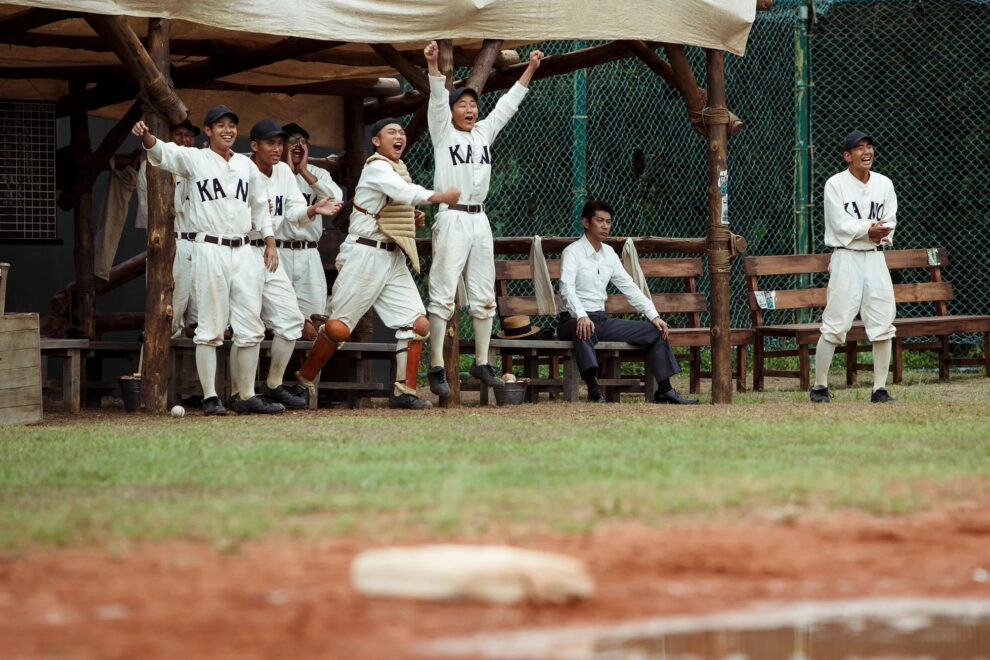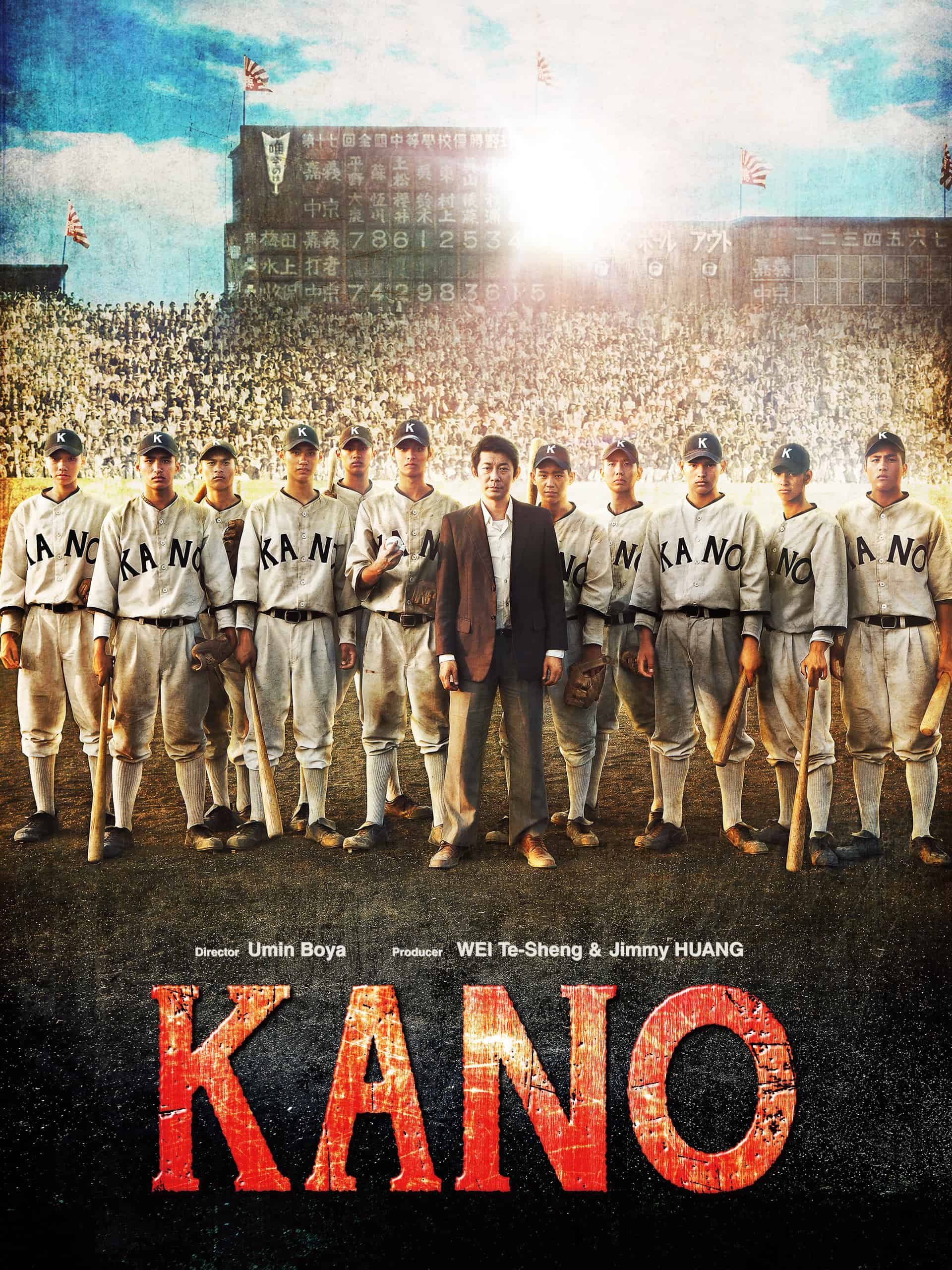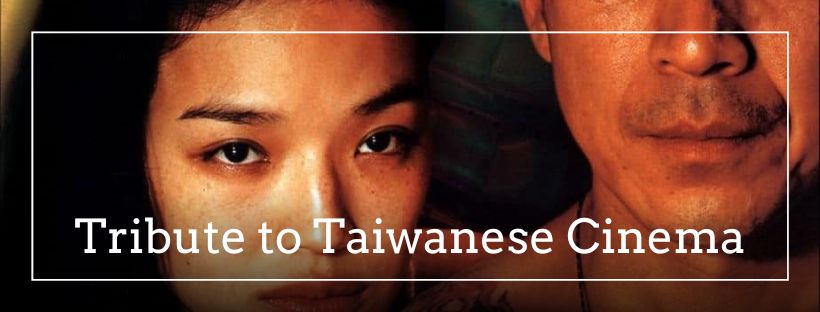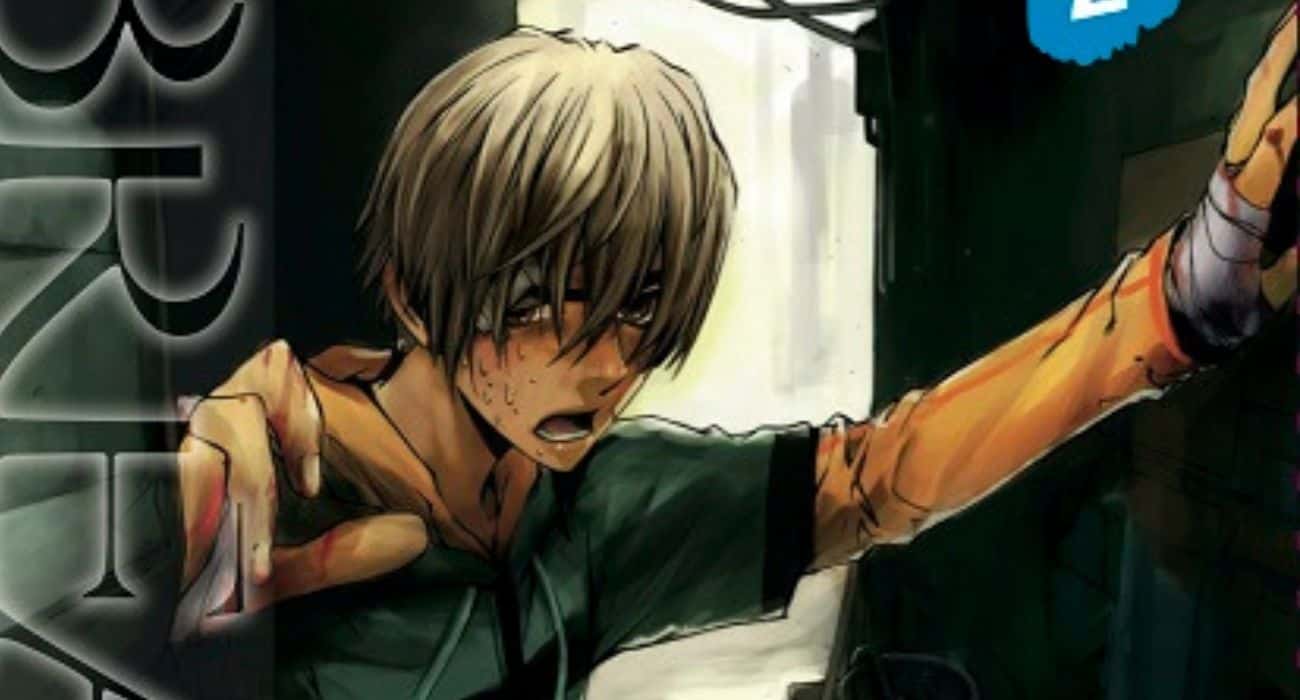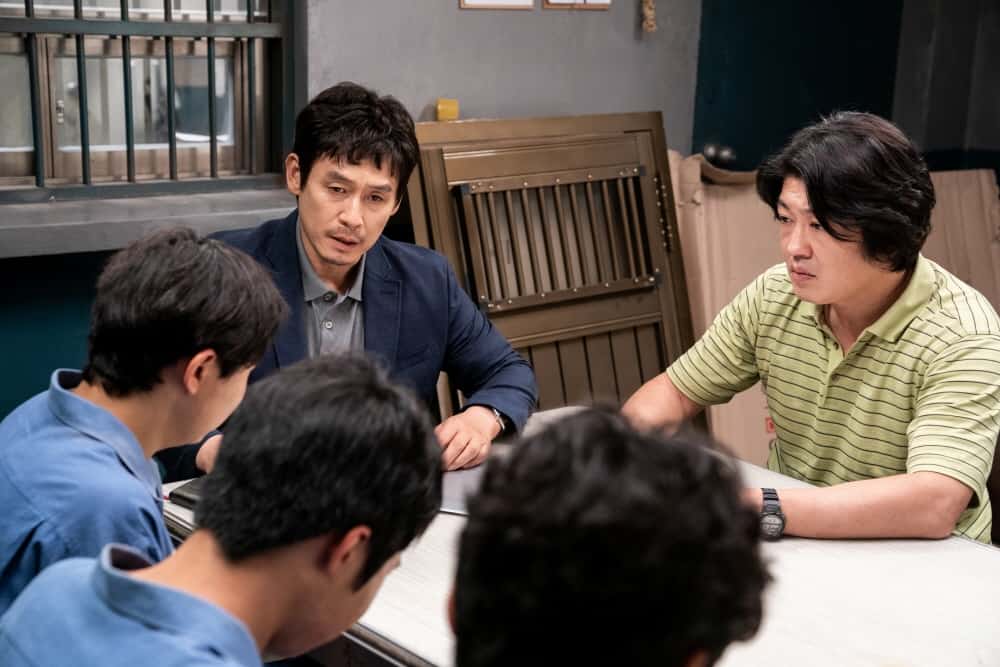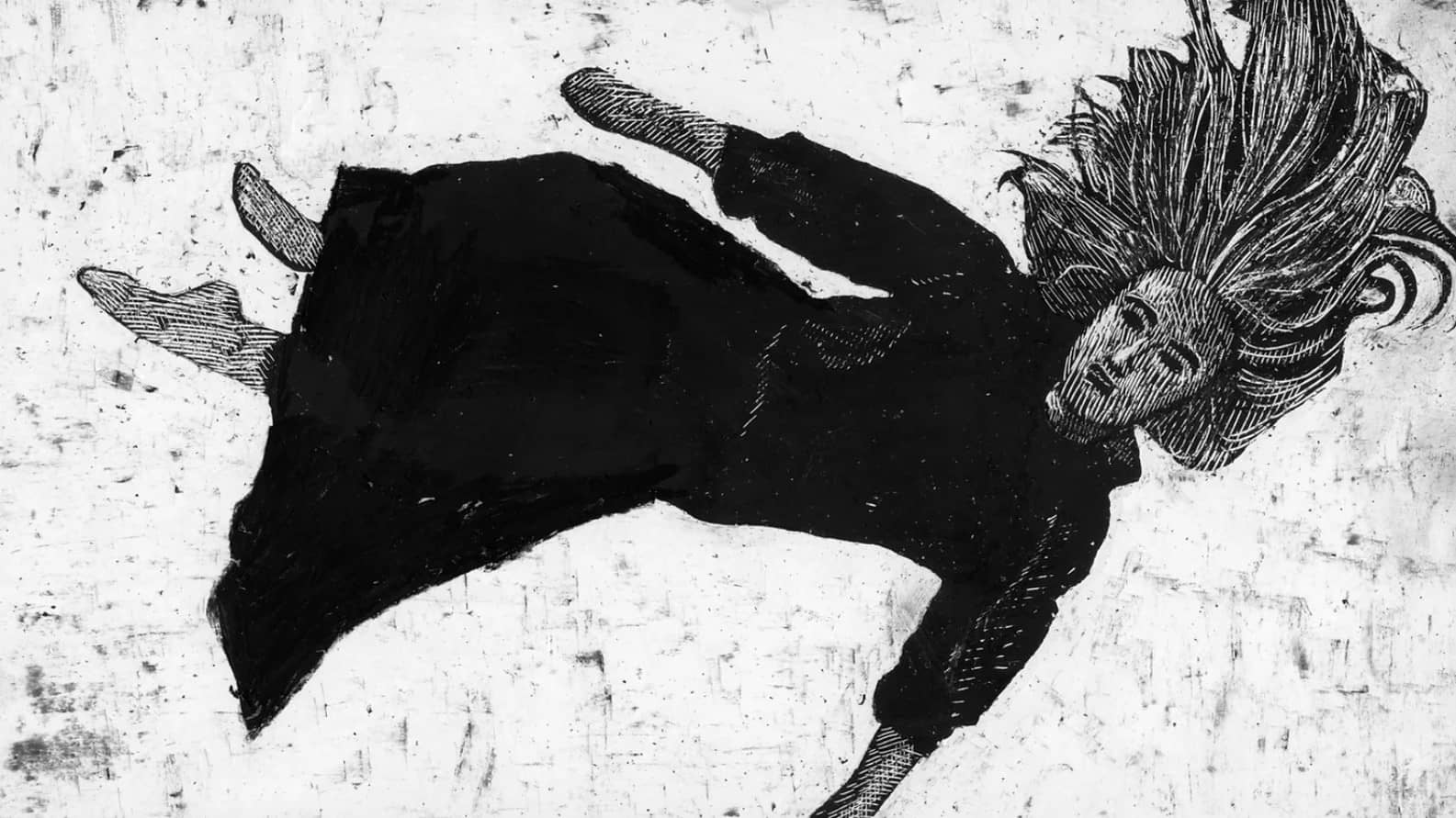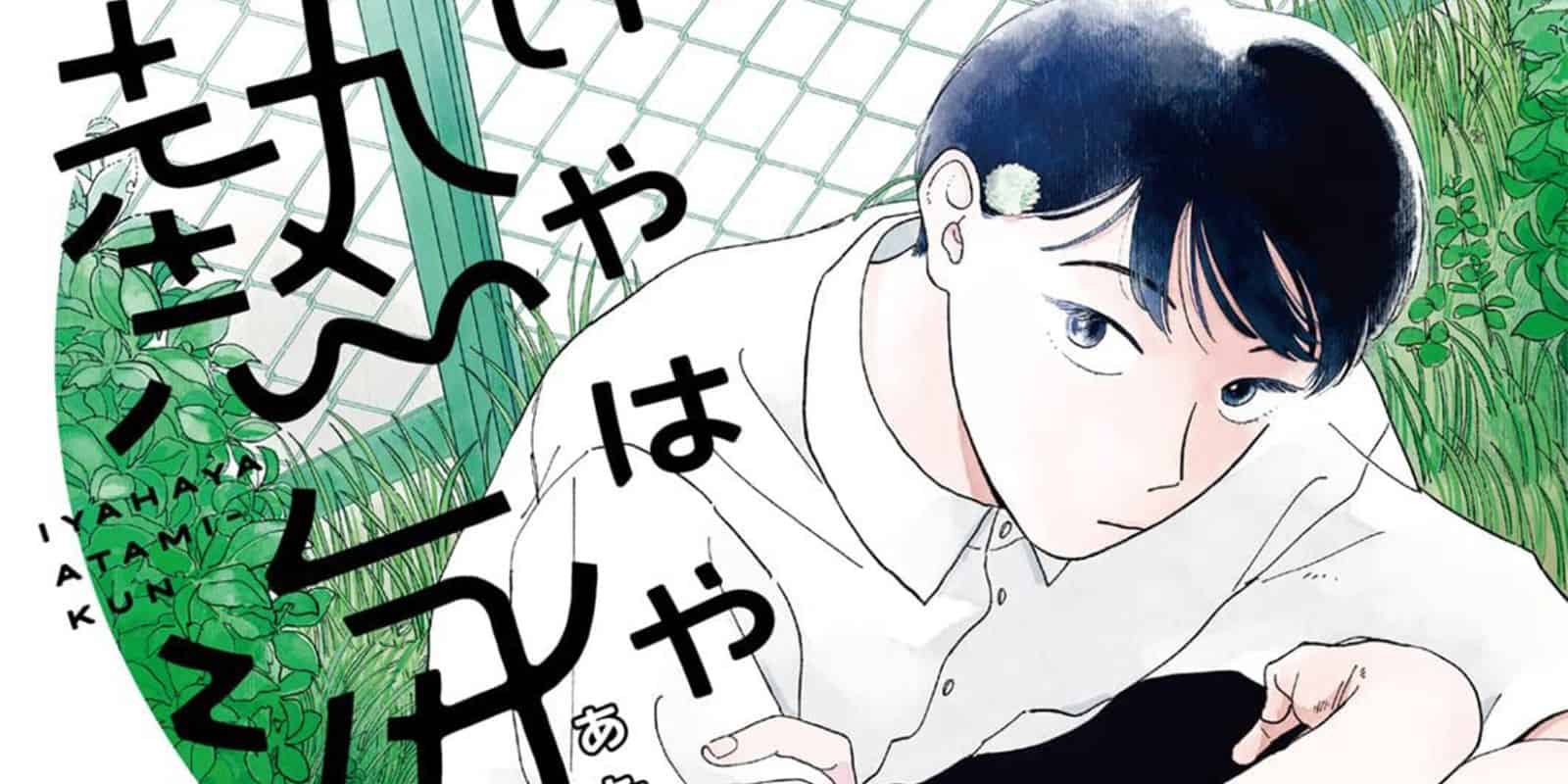The concept of the underdog that reaches the top out of nowhere, particularly in sports, has been one of the most popular tropes in international cinema, especially when combined with a sense of nostalgia and a true story, with Hollywood having essentially exhausted the whole concept during the 80s and 90s. Umin Boya follows the same path in “Kano”, which is based on the homonymous, multiracial baseball team from Chiayi, in the Japanese-era Taiwan, that ended up representing the island in the 1931 Japanese High School Baseball Championship at Koshien Stadium. The film, which features well-known Japanese stars and an army of young Taiwanese athletes (and a few Japanese ones) won a number of awards in Asia, and was also a huge box office success, still holding the 6th place in the list of the highest grossing domestic Taiwanese films of all time.
Starting as a flashback from 1944, presented through the eyes of Joshiya, a high school player who faced Kano in the particular tournament, the movie soon moves into 1931 Chiayi when Hyotaro Kondo, who has brought his family to Taiwan from Japan in order to work as a bookkeeping instructor at Kano, is forced to coach the baseball team of the school. The one doing the ‘convincing' is Hamada, an agricultural teacher who loves to experiment with papaya and who has a very tight connection with the students, most of whose background has to do with agriculture. The Kano team has never won, and has never even scored, with Hamada's purpose essentially being to just offer some exercise for the boys. Kondo, however, has a completely different approach, and immediately implements a tough regiment in almost militaristic terms, in order to bring the players into shape and turn them into full-fledged athletes.
Expectedly, his effort is met with many obstacles, additionally because the team is composed of Taiwanese aborigines, Han Taiwanese and Japanese players and communication is not exactly easy. However, and headed by his three star players, pitcher Meisho Go, hitter So Seisei and fast runner Yasuo Hirano, and an overall excellent defense, the team soon starts to improve.
Umin Boya includes all the fan-favorite of the category, with the coach with the past that changes the fate of a losing team along with himself, against all odds, the poor player who becomes a star and eventually plays despite his injuries, the winning path of the underdog which soon brings the whole community together following them, and the rather dramatic finale. In that fashion, the nostalgia of the initial arc with Joshiya is just the cherry on top of a film that will definitely satisfy all fans of the particular category.
Especially of note is the focus on the field and its soil, with the rundown, sandy ground of Taiwan eventually giving its stead to the black one of Koshien, both of which are implemented for visual impact and as part of the narrative, in a number of messages delivered from Kondo. DP Chin Ting-chang ‘exploits' the particular aspect in a number of ways, with the black of the latter in particular being impressively highlighted, in an overall work that is equally outstanding in the presentation of the games and the non-games sequences, in a visual style that will definitely remind many of “Always Sunset on Third Street”.
And mentioning Kondo, his character is probably the most intriguing in the movie, with his past, the way he warms up to his players and the particular style of sport, the admonishing of tough love and the presentation of his own issues forming one of the central arcs of the narrative. Masatoshi Nagase is exceptional in the part, both in his calm and his angry moments, anchoring the movie in the best fashion. The second most impactful performance comes from Tsao Yu-Ning as Go, with his ‘arc' being the main source of drama here as much as the embodiment of the ‘underdog that succeeds' trope. The rest of the players also give fitting performances with the job done in the casting being rather good.
Even if some episodes moving away from the central arc look disconnected, Milk Su's editing emerges as one of the best traits of the movie, with the prowess being evident equally in the matches, the training, and the peripheral episodes, all of which feature their own, rather fitting pace. The flashbacks are also well-placed, while the fact that, although clocking at 185 minutes, the movie does not become tiresome at all, is a feat in itself.
Of course, and with the focus being on the triumph of the underdog and the approach being of a feel-good movie, the sociopolitical aspect is completely absent, despite that there is a rather large base of characters that could lead to a number of comments. As such, the story of the movie is definitely idealized, completely omitting the impact of Japanese colonization of the island, with the fact that all the dialogues are in Japanese adding to this sense. This, however, and considering the aforementioned nature of the movie, is not exactly an issue, as “Kano” definitely succeeds in its main goal, of having its audience have a good time while cheering for the protagonists.


